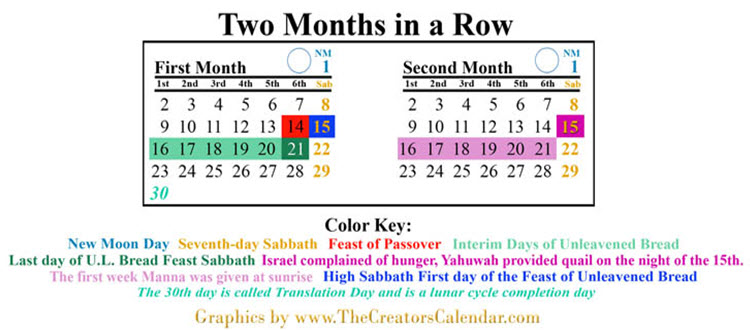Three Months in a Row – The Manna – Part 2
Three Months in a Row
– The Manna – Part 2
The Manna from the Shamayim
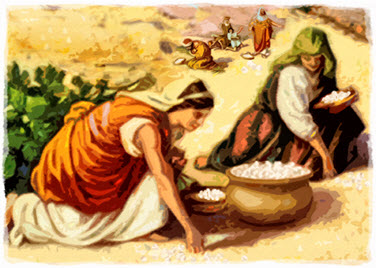
Within the parameters of “Three Months in a Row – The Manna – Part 2,” this second month in a row, our loving Eternal Father, Yahuah, further demonstrates to the Hebrew people, in a gentle and beautiful way, additional insight and confirmation of His preordained TIME-MEASURING calendar system. In the aftermath of the many years in slavery to their pagan Egyptian masters, they had many things to learn about their Creator and many things to unlearn. With the manna provided from above, their restorative lessons in TIME had only just begun.
As clarified in The Exodus—Part 1, we discovered that the first foundational truth restored to the Hebrews was the lunar calendar model, which began with the full moon as the Start of Years and lunar months. The vital element often overlooked in the Exodus and Manna narrative is that TIME itself became the first testing truth for Israel 3,500 years ago.
If Israel (Yasharal) had refused to obey Yahuah Alahim’s detailed and time-centric instructions regarding which lunar phase was Rosh Hashanah (New Year’s Day), they would NOT have celebrated Passover at the correct time on the authentic 14th day of the lunar month and year. Nor would they have ever left Egypt. Then, the calendar became the test again in the second month in a row, with the unique manna feeding schedule. How would you respond? Would you refuse to obey, or would your greatest heart’s desire be to align your soul temple with His?
Some well-intended folks may believe they can refute this manna story’s lunar years, months, and weeks. Yet, it was exactly one lunar month prior to receiving the Manna from above that Yahuah Alahim restored Rosh Hashanah (New Year’s Day in spring) along with lunar months and the count of lunar days to Passover. Therefore, all units of time are counted down from Rosh Hashanah and each successive full New Moon. This is a nail in a sure place that laid the foundation of lunar time for all the following lunar months, including this one.
Exodus 16:1-36 – Three Months in a Row – The Manna – Part 2
And they journeyed from Elim, and all the congregation of the children of Israel came to the Wilderness of Sin, which is between Elim and Sinai, on the fifteenth day of the Second Month after they departed from the land of Egypt. 2 Then the whole congregation of the children of Israel complained against Moses and Aaron in the wilderness. 3 And the children of Israel said to them, “Oh, that we had died by the hand of Yahuah in the land of Egypt when we sat by the pots of meat and when we ate bread to the full! For you have brought us out into this wilderness to kill this whole assembly with hunger.”
4 Then Yahuah said to Moses, “Behold, I will rain bread from the shamayim (heavens) for you. And the people shall go out and gather a certain quota every day, that I may test them, whether they will walk in My law or not. 5 And it shall be on the sixth day that they shall prepare what they bring in, an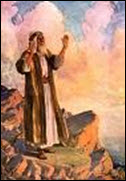 d it shall be twice as much as they gather daily.” 6 Then Moses and Aaron said to all the children of Israel, “At evening you shall know that Yahuah has brought you out of the land of Egypt. 7 And in the morning, you shall see the majesty of Yahuah, for He hears your complaints against Yahuah. But what are we that you complain against us?” 8 Also, Moses said, “This shall be seen when Yahuah gives you meat to eat in the evening [night of the 15th after the Sabbath daylight departed], and in the morning [the 16th] bread to the full; for Yahuah hears your complaints which you make against Him. And what are we? Your complaints are not against us but against Yahuah.”
d it shall be twice as much as they gather daily.” 6 Then Moses and Aaron said to all the children of Israel, “At evening you shall know that Yahuah has brought you out of the land of Egypt. 7 And in the morning, you shall see the majesty of Yahuah, for He hears your complaints against Yahuah. But what are we that you complain against us?” 8 Also, Moses said, “This shall be seen when Yahuah gives you meat to eat in the evening [night of the 15th after the Sabbath daylight departed], and in the morning [the 16th] bread to the full; for Yahuah hears your complaints which you make against Him. And what are we? Your complaints are not against us but against Yahuah.”
9 Then Moses spoke to Aaron, ‘Say to all the congregation of the children of Israel, ‘Come near before Yahuah, for He has heard your complaints.’ 10 Now it came to pass, as Aaron spoke to the whole congregation of the children of Israel, that they looked toward the wilderness, and behold, the majesty of Yahuah appeared in the cloud. 11 And Yahuah spoke to Moses, saying, 12 “I have heard the complaints of the children of Israel. Speak to them, saying, ‘At twilight [sunset of the 15th], you shall eat meat, and in the morning [of the 16th], you shall be filled with bread. And you shall know that I am Yahuah, your Alahim.'”
13 So it was that quails came up at evening [sunset of the 15th] and covered the camp, and in the morning [the 16th], the dew lay all around the camp. 14 And when the layer of dew lifted, there, on the surface of the wilderness, was a small round  substance, as fine as frost on the ground. 15 So when the children of Israel saw it, they said to one another, “What is it?” For they did not know what it was. And Moses said to them, “This is the bread which Yahuah has given you to eat. 16 This is the thing which Yahuah has commanded: ‘Let every man gather it according to each one’s need, one omer for each person, according to the number of persons; let every man take for those who are in his tent.'” 17 And the children of Israel did so and gathered some more, some less. 18 So when they measured it by omers, he who gathered much had nothing over, and he who gathered little had no lack. Every man had gathered according to each one’s need. 19 And Moses said, “Let no one leave any of it till morning.” 20 Notwithstanding, they did not heed Moses. But some of them left part of it until morning, and it bred worms and stank. And Moses was angry with them. 21 So they gathered it every morning, every man according to his need. And when the sun became hot, it melted.
substance, as fine as frost on the ground. 15 So when the children of Israel saw it, they said to one another, “What is it?” For they did not know what it was. And Moses said to them, “This is the bread which Yahuah has given you to eat. 16 This is the thing which Yahuah has commanded: ‘Let every man gather it according to each one’s need, one omer for each person, according to the number of persons; let every man take for those who are in his tent.'” 17 And the children of Israel did so and gathered some more, some less. 18 So when they measured it by omers, he who gathered much had nothing over, and he who gathered little had no lack. Every man had gathered according to each one’s need. 19 And Moses said, “Let no one leave any of it till morning.” 20 Notwithstanding, they did not heed Moses. But some of them left part of it until morning, and it bred worms and stank. And Moses was angry with them. 21 So they gathered it every morning, every man according to his need. And when the sun became hot, it melted.
22 And so it was, on the sixth day [21st day of the lunar month], that they gathered twice as much bread, two omers for each one. And all the rulers of the congregation came and told Moses. 23 Then he said to them, “This is what Yahuah has said: ‘Tomorrow is a Sabbath rest, a sacred Sabbath to Yahuah. Bake what you will bake today, and boil what you will boil; and lay up for yourselves all that remains, to be kept until morning.'” 24 So they laid it up till the morning, as Moses commanded, and it did not stink, nor were there any worms in it. 25 Then Moses said, “Eat that today, for today is a Sabbath to Yahuah; today you will not find it in the field. 26 Six days you shall gather it, but on the seventh day, which is the Sabbath, there will be none.” 27 Now, it happened that some of the people went out on the seventh day to gather, but they found none. 28 And Yahuah said to Moses, “How long do you refuse to keep My commandments and My laws? 29 See! For Yahuah has given you the Sabbath; therefore, He gives you on the sixth-day bread for two days. Let every man remain in his place; let no man go out of his place on the seventh day.” 30 So the people rested on the seventh day. 31 And the house of Israel called 001 - Nike Kobe 6 Prelude 2014 640220 - Nike kyrie low 4 tb team bank black white sneakers da7803-001 mens 7.5-13.5 its name Manna. And it was like white coriander seed, and the taste of it was like wafers made with honey.
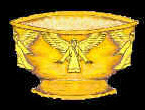 32 Then Moses said, “This is the thing which Yahuah has commanded: ‘Fill an omer with it, to be kept for your generations, that they may see the bread with which I fed you in the wilderness when I brought you out of the land of Egypt.'” 33 And Moses said to Aaron, “Take a pot and put an omer of manna in it, and lay it up before Yahuah, to be kept for your generations.” 34 As Yahuah commanded Moses, so Aaron laid it up before the Testimony, to be kept. 35 And the children of Israel ate manna forty years until they came to an inhabited land; they ate manna until they came to the border of the land of Canaan. 36 Now, an omer is one-tenth of an ephah.
32 Then Moses said, “This is the thing which Yahuah has commanded: ‘Fill an omer with it, to be kept for your generations, that they may see the bread with which I fed you in the wilderness when I brought you out of the land of Egypt.'” 33 And Moses said to Aaron, “Take a pot and put an omer of manna in it, and lay it up before Yahuah, to be kept for your generations.” 34 As Yahuah commanded Moses, so Aaron laid it up before the Testimony, to be kept. 35 And the children of Israel ate manna forty years until they came to an inhabited land; they ate manna until they came to the border of the land of Canaan. 36 Now, an omer is one-tenth of an ephah.
The Evidence and Key Time Details
During the Three Months in a Row – The Manna – Part 2, the Second Month of the Exodus, Yahuah sent manna from above, which presents the second detailed calendar layout in a row. This means that Yahuah has given us two months in a row for comparison, each of which establishes details for monthly calendation, weekly cycles, New Moons, and lunar seventh-day Sabbaths. The story of the manna sent from above presents some unique information that will, step by step, reveal an otherwise hidden calendar model. Then, a comparison will be drawn between the “Passover” events of the First Month of Abib and the “manna” details of the Second Month for added clarification and confirmation.
From the New King James Version above, it can be seen, at first glance, that the Israelites had arrived at the Wilderness of Sin on the night of the 14th, then they murmured and complained of hunger on the next morning of the 15th, which was also the seventh-day Sabbath. Remember that they often traveled by night, just as they did on the 15th of Abib when they first left Egypt after the Sabbath was passed. (Deuteronomy 16:1)
It is well known that during translation, the punctuation is placed in Scripture at the discretion of the translators. On occasion ir jordan 11 bred game worn 1996 finals auctio, punctuation has been discovered to be in error. It has a significant impact on the meaning of a sentence or even on an entire doctrinal belief, such as with the story of the crucifixion and the thief on the cross (Luke 23:43). Below is a case in point of a clearer rendering of the same event of the arrival at Mt. Sinai, from the Septuagint translation. Here, a semicolon is placed at the natural change in thought in the Hebrew sentence structure known as an “atnach.”
And they departed from Elim, and all the congregation of the children of Israel came to the wilderness of Sin, which is between Elim and Sinai; and on the fifteenth day, in the second month after their departure from the land of Egypt, all the congregation of the children of Israel murmured against Moses and Aaron. Exodus 16: 1, 2 Septuagint
The focus here is not that the Septuagint version of Scripture is the most accurate, but rather, it presents the punctuation in the location that shifts the meaning of the verse. Rather, the point is that since punctuation is not given in the original Hebrew but applied by mere mortals as they render the Hebrew into English, the possibility of punctuation error must be considered. After all, punctuation is generally placed in a position to support the translators’ views. Therefore, we maintain that Israel arrived at the wilderness of Sin in the Second Month, on the night of the fourteenth. It was on the fifteenth day that all of Israel murmured and complained. This complaining occurred on the Sabbath, the 15th day counted from the full New Moon. This is why Yahuah waited to send the quail for food after sunset on the fifteenth.
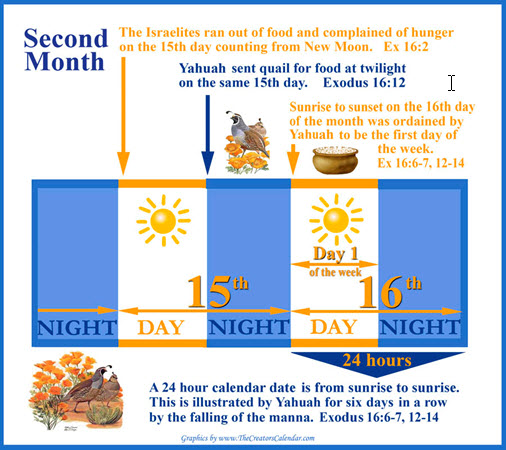
- On the 15th day of the second month of the year, after departing from Egypt, the people murmured and complained of hunger. Exodus 16:1-3
- “At twilight [following sunset] you shall eat meat, and in the morning you shall be filled with bread.” Exodus 16:12. Twilight means dusk and immediately follows sunset (Deuteronomy 16:6-7). Deuteronomy 16:1 says, “for in the month of Abib Yahuah your Alahim brought you out of Egypt by night.”
- Yahuah told Moses and Aaron that He would send quail that very night of the 15th following sunset, but on the next morning He would rain down bread from the shamayim (heaven), identifying the 16th of the month as the first day of the week.
- The 1st and the 15th days of the month are the calendation markers given for this second month. From these two markers we can lay out the entire calendar month in both directions. Exodus 16:6-7; 12, 13
- The Israelites were to gather one omer (measure) of manna per person per day for five days, but on the sixth day they were to gather a double portion for that day and the seventh-day, for the seventh-day was the Sabbath, a sacred day of rest unto Yahuah, for a period of 12 hours from sunrise to sunset (John 11:9). Once we established that the first day of manna fell on the 16th day of the month it is easy to add six more days to calculate that the seventh-day Sabbath is on the 22nd of the month. Exodus 16:16-26
- A fact that is often missed in the daily count of the falling manna is t
hat – each day the manna was given in the morning, not during the night hours. Notice how each new day begins with the manna at sunrise after the dew melted.
- An additional fact is that none of the manna was to be kept over until the next morning. If they did it bred worms and stunk. Exodus 16:19, 20. This is a detail that must not be overlooked, because Yahuah was not choosing an arbitrary time to illustrate the beginning of each new day. He was being very specific that each day began at sunrise followed 12 hours later by the night, and was illustrated by the replacement of fresh Украина #143912860 , adidas Ultraboost 5.0 DNA "Sonic Ink" , Брюки штаны adidas z.n.e. cold.rdy athletics fs2437 — цена 850 грн в каталоге Спортивные штаны ✓ Купить женские вещи по доступной цене на Шафе manna each morning. The Father’s plan was to use the manna as a continual test of the Israelites obedience to Him. If this manna schedule is His test, then the smallest details must not be overlooked.
- “They shall gather a certain quota every day, so that I may test them, whether they will walk in my law.” Exodus 16:4. Using the miracle air jordan 6 toro of the manna, Yahuah shed light on the parameters of His lunar months, weeks, days, true sacred seventh-day Sabbath as He had ordained each of them at Creation. Then He used the parameters of gathering manna for the Sabbath to test the people’s obedience to Him. Keeping the true Sabbath sacred on the correct days of the lunar month, counting from the New Moon was to be the test and sign of their loving obedience. Their seeking obedience in this area was to be a revealer of their true heart intentions. In the exact same manner, Yahuah uses the true Sabbath as a test of our obedience to Him today. His true Sabbath is only found, by following the same principles as outlined in this manna story. Exodus 16:4, 5; Exodus 31:13
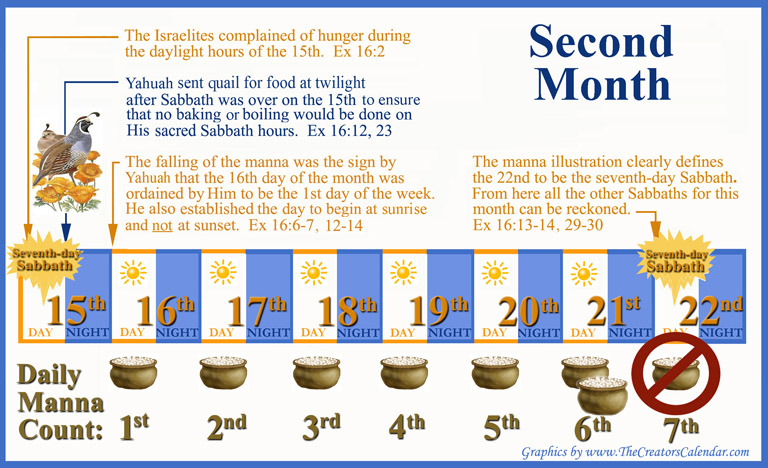
- “So the people rested on the seventh-day.” Exodus 16:29-30. The date of this first Sabbath of resting from gathering manna would have been the 22nd day of the Second Lunar Month. The first day of gathering manna was the 16th, the day after they complained of hunger.
Evidence for Two Months in a Row
- In the First Month Yahuah declared that this was to be the first day of the first month of the first year, to Moses and Aaron. Notice that Yahuah did not say it was the first day of the week. Did He simply forget to mention it, or was the absence of it’s being mentioned part of His clarification, as He unfolded the details of His calendation system to the Hebrew people? Exodus 12:1-2
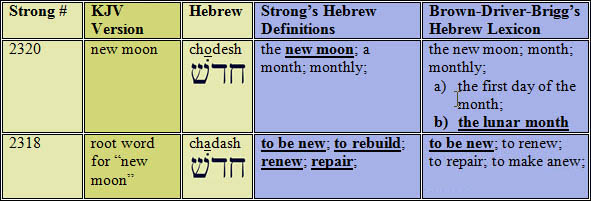
(Note to the reader: no vowel points have been placed under each Hebrew word because vowel points are a recent invention of man and do not belong to the original Hebrew text.)
- In the First Month of Abib, on the 14th day of the lunar month, is the Passover. Passover, the 14th of Abib is permanently fixed simultaneously to that date as well as sixth day of the week, also known as the preparation day, each and every year, forever. This dual placement fact preserves both Passover and the sacred Sabbath from being found on any other calendar invention. In other words this coincident reality makes it impossible for Passover and the seventh-day Sabbath to be found on a solar continuous weekly cycle. Exodus 12:6-11; John 19:31-32; Leviticus 23: 5-7.
- “And none of you shall go out of the door of his house until morning.” The morning referred to had to be the morning of the 15th, for this was the date following the 14th. Because of this command of Yahuah Alahim, we can know with certainty that He did not lead the people out of Egypt on the night of the 14th after Yahuah passed over at midnight. Exodus 12:22
- Additional confirmation that shows the Hebrew people did not leave Egypt on the night of the 14th, was that after the Eternal Yahuah had passed over and slay all the first born males of Egypt, Pharaoh sent for Moses and Aaron by night. He was sending for them to tell them they had his permission to leave and to do so quickly. However, Yahuah had commanded that no one was to go out of the door of his house until morning. Therefore Moses and Aaron waited until the morning of the 15th, which followed the night of the 14th, to go to Pharaoh where they received permission to leave. But they did not leave until the night of the 15th calendar date because night always follows day. (Exodus 12:31)
- Yahuah commanded that the Passover lamb was to be slain [בין H996 = between + הערבים H6153 = the evenings (plural)], the period between sunrise and sunset, during the daylight of the 14th. Apparently this occurred around noon, then after its blood was drained and placed upon the lintel and doorposts, it was roasted. The lamb was then eaten in haste after sunset so that it would be fully consumed prior to midnight on the 14th, when Yahuah PASSED OVER Israel, because of their obedience, and all the first born of Egypt were slain. This was to be done “with a belt on your waist, your sandals on your feet, and your staff in your hand.” To all appearances it seemed they would be leaving that night, the night of the 14th or at the very least in the morning. But remember, we have previously established that the 14th day is also the preparation day for Sabbath. Could it be that Yahuah simply was having them be prepared to leave in advance, knowing that the Sabbath was drawing on at day break? Because Yahuah would not break His own Sabbath, He had the people be prepared on the night of the 14th so they would not have to do any work on His sacred Sabbath, of which He outlined and ordained as only the “daylight” hours of the 15th. In this way they would be prepared in advance. For we discovered that Israel did not leave Egypt until the night of the 15th (Deut. 16:1; Numbers 33:2-4). Therefore we have definitive evidence that the sacred hours of the seventh-day Sabbath began at sunrise on the 15th of both the First Month (Abib) and the Second Month. Exodus 12:11; Gen.1:3, 5, 13, 19, 23, 31; Genesis 2:2, 3.
- The 15th of the First Month (Abib) is always a High Sabbath, as it is the commencement of the Feast of Unleavened Bread on a seventh-day Sabbath, each and every year, forever. Fifteen hundred years later at the crucifixion of Yahusha the Messiah, we receive some added details: “Therefore, because it was the Preparation Day, that the bodies should not remain on the cross/stake on the Sabbath (for that Sabbath was a high day), the Jews asked Pilate that their legs might be broken, and that they might be taken away.” John 19:31-32.
- Our loving Father brought the Israelites out of Egypt by night on the 15th of the First Month of Abib, when the Sabbath was over (Deuteronomy 16:1). Compare this with the Second Month, when the quail were sent by Yahuah on the night of the 15th, after sunset, at the commencement of twilight and the first watch of the night. Exodus 16:1-13.
- The seventh-day Sabbath is a twelve hour period from sunrise to sunset. The modern translations ir jordan 3 whataburger custom of the Genesis account defines the day as evening and morning, in that order, but this is not exactly correct. It is actually referring to the completion of an entire cycle from sunrise to sunrise. For Yahuah did all of His creative works in the LIGHT and not in the darkness. Refer to article, A Day in Genesis.
In the first lunar month of the Exodus account, on the 15th, Yahuah waited until after sunset to lead the Israelites out of Egypt. In the second lunar month, as illustrated here in “Three Months in a Row – The Manna – Part 2,” He waited until after sunset to send quail for them to eat. Therefore, we have definitive evidence that the sacred hours of the seventh-day Sabbath ended at sunset, dusk, or twilight on the 15th of both the First Month (Abib) and the Second Month. Thus, clarifying that there are only twelve sacred hours of radiant sunshine for the Sabbath. An additional point is that the first watch of the night begins at sunset, while the last watch of the night ends at sunrise.
In the First month of Abib, Yahuah gives us three specific dates: the 1st, the 10th, and the 14th. We can establish the 15th day as a seventh-day Sabbath from these dates and the details surrounding them. Simple math then places a seventh-day Sabbath also on the 8th, 22nd, and 29th; it also places the New Moon as day 1, which was the day Yahuah spoke to Moses and Aaron, giving them an introduction to the complete layout of the Creator’s calendar month.
First Month – Passover and the Exodus
 Second Month – Manna from the Shamayim
Second Month – Manna from the Shamayim
- Three Months in a Row – The Manna – Part 2. In the Second Month, the Israelites had run out of food and complained to Moses and Aaron of hunger on Sabbath during the daylight of the 15th. Yahuah said He would bring quail for them that very night, which was naturally after the Sabbath was past, at sunset. Yahuah was not about to start breaking His own Sabbath at the very time He is trying to teach Israel when to keep it sacred. Therefore Yahuah took special care and waited until the seventh-day Sabbath “daylight” hours were over-with before sending the quail for food. He also highlighted that the 15th daylight was indeed the Sabbath day by commencing the beginning of the manna the very next morning after the Sabbath was past. Therefore the next day was the 16th, and the first day of the new lunar week cycle.
- The 22nd day was designated a seventh-day Sabbath, because on that day no manna fell. The people were to keep it as a sacred Sabbath day of worship. The people were to show their obedience to Yahuah by their obedience, in gathering a double portion of manna on the sixth day, and by not seeking to gather it on the seventh-day, each and every week. This is another way that Yahuah established the sixth day as the day of preparation.
- For the second month in a row, simple math then places a sacred seventh-day Sabbath on the 8th, 15th, 22nd, and 29th, giving us a complete layout of the Second Lunar Month.
Second Month Conclusion
Yahuah’s primary focus with the lesson of “Three Months in a Row – The Manna – Part 2” was to illustrate how the six workdays and the authentic seventh-day Sabbath relate to each other as they are all counted from the New Moon Day. This is vital because it is impossible to locate the real seventh-day Sabbaths without first establishing the authentic and original start of the lunar month. This was accomplished first by repeating one of the directives given for the first month in a row, such as identifying the first day of the lunar month (Chodesh/new moon). The simple fact is that Exodus 16:1 states that the manna was first given on the 16th day of the second lunar month. This fact confirmed to the Israelites exactly when each month was to begin. All that is necessary then is to count backward fifteen days to discover the New Moon Day, the start of the lunar months.
While no word is given to describe how manna was scheduled for New Moon Days, the historical record may fill in the gaps.
Here is a historical Jewish perspective:
“Each New Moon was celebrated with a fast.” Jewish Family Celebrations, p. 35.
“. . . The sacred festival of the new moon, which people give notice of with trumpets, and the day of fasting, on which abstinence from all meats and drinks is enjoined . . .” Philo Book 26, p. 159
With all this said, there seem to be no forthcoming details on the Kadosh (holy) Feast Day feeding schedule. So, by extension, we are left with our best logic of how manna was or was not given on Feast Days. The Feast Days that fell on the seventh-day Sabbaths would have the same manna criteria as the Sabbaths. For example, on the first day of the Feast of Unleavened Bread (Matza), which occurred on the Sabbath, the manna was to be gathered on the previous day. For each of the other workdays, it was gathered as usual. No manna fell on the Feast Day of Atonement (Yom Kippur), as this appears to have been a scheduled sacred fasting day.
Our loving Father, Yahuah’s secondary focus for giving the “lesson of the manna,” appears to be ordained for this last generation. As Moses recorded the dates and events for these two months in a row, it demonstrates that the modern Roman Gregorian calendar is not in harmony with the Scriptural account of the Creator’s ordained calendation identifiers within these first two months in a row. Yahuah is then able to wake up His obedient, hungering, and thirsting souls and direct them back to His lost and ancient calendar truths. Only then can He restore to us His sacred and set-apart Feast Days and true sacred seventh-day Sabbaths that seal His obedient followers into His truths. Could it be that Yahuah has once again begun to teach His timely lessons borne out by the manna feeding schedule as He continues to lead His faithful and obedient followers out of the false calendation to synchronize them with His sacred appointments?
He who has an ear, let him hear what the Ruach (Spirit) says to the ecclesia (churches). To him who overcomes I will give some of the hidden manna to eat . . . Revelation 2:17


